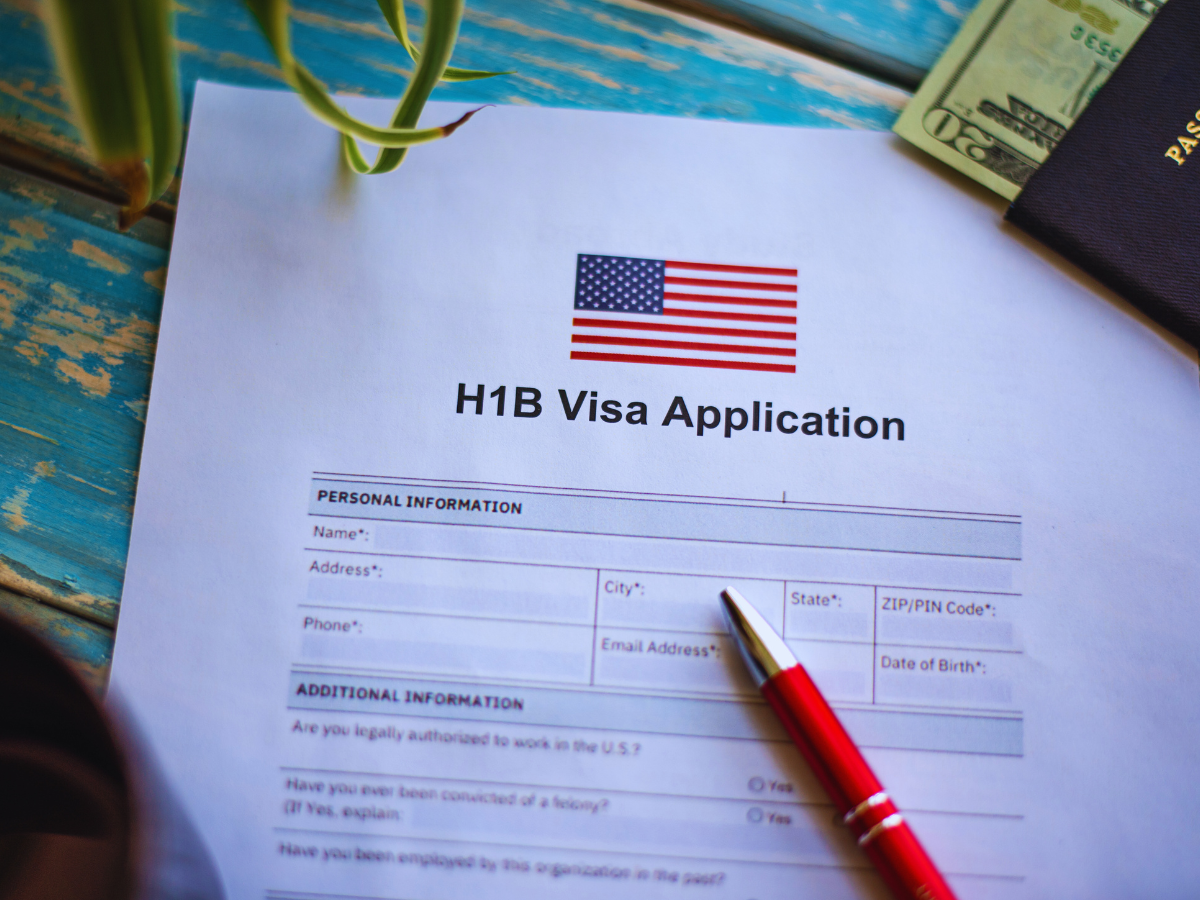H-1B Visa Cap for FY2026 Reaches Maximum Limit
The United States has reached the maximum limit for H-1B visa petitions for the 2026 fiscal year. The US Citizenship and Immigration Services (USCIS) confirmed that it has received enough applications to fill both the regular cap of 65,000 visas and the additional 20,000 slots reserved for individuals with advanced degrees from US institutions.
A total of 120,141 registrations were selected in the initial round from 118,660 unique beneficiaries. Only those who were selected are now eligible to file a full H-1B petition for FY2026. The USCIS has closed the cap intake and will only accept cap-exempt petitions moving forward.
Decline in Registrations and Employer Participation
This year saw a significant drop in the number of registrations compared to previous years. The agency received 343,981 eligible registrations for FY2026, which is a 26.9% decrease from the 470,342 registrations in the previous year. There was also a sharp decline in multiple registrations per beneficiary, falling to 7,828 from 47,314 in FY2025. The average number of registrations per beneficiary decreased to 1.01 this year from 1.06 last year.
Approximately 57,600 unique employers participated in this cycle, showing a slight increase from 52,700 in FY2025. However, the number of eligible unique beneficiaries dropped sharply to around 339,000 from 442,000 in the previous year.
Here is a summary of registration and selection numbers for fiscal years 2021–2026:
| Cap Fiscal Year | Total Registrations | Eligible Registrations* | Eligible Registrations for Beneficiaries with No Other Eligible Registrations | Eligible Registrations for Beneficiaries with Multiple Eligible Registrations | Selected Registrations |
|——————|———————|————————–|———————————————————————————-|———————————————————————————-|————————|
| 2021 | 274,237 | 269,424 | 241,299 | 28,125 | 124,415 |
| 2022 | 308,613 | 301,447 | 211,304 | 90,143 | 131,924 |
| 2023 | 483,927 | 474,421 | 309,241 | 165,180 | 127,600 |
| 2024 | 780,884 | 758,994 | 350,103 | 408,891 | 188,400 |
| 2025 | 479,953 | 470,342 | 423,028 | 47,314 | 135,137 |
| 2026 | 358,737 | 343,981 | 336,153 | 7,828 | 120,141 |
*Eligible registrations do not include duplicate entries, withdrawals, invalid documents, or unsuccessful payments.
Cap-Exempt Petitions Continue to Be Accepted
Despite reaching the cap, USCIS clarified that petitions under cap-exempt categories will still be processed. These include petitions for current H-1B workers who have already been counted under previous years’ caps and retain their cap number.
Cap-exempt petitions can be submitted in the following cases:
- To extend the stay of an H-1B worker in the US
- To change the terms of their employment
- To allow a worker to change employers
- To enable concurrent employment in an additional H-1B role
Electronic Registration and Fraud Checks
To submit a petition for a cap-subject H-1B visa, employers must first complete an electronic registration and pay a non-refundable fee per applicant. Each registration must include accurate passport or travel document details. This process aims to reduce paperwork and streamline the selection process.
USCIS reiterated that any duplicate registration, invalid passport entry, or false attestation disqualifies the registration. Every petitioner must attest that the job offer is legitimate and that no collusion exists with other entities to increase selection chances. Violations of these rules may result in denial, revocation, or even criminal referral.
“If we find that this attestation was not true and correct, we will find the registration to not be properly submitted,” said USCIS. The agency has carried out investigations based on past violations and will continue to do so for FY2025 and FY2026.
Overview of the H-1B Program
The H-1B program allows US companies to hire foreign workers in specialized roles such as IT, engineering, healthcare, and finance. Those already counted under previous years’ caps are unaffected by the current cap cycle. USCIS will continue accepting petitions for these workers in cases of extensions, employer changes, or concurrent roles.







